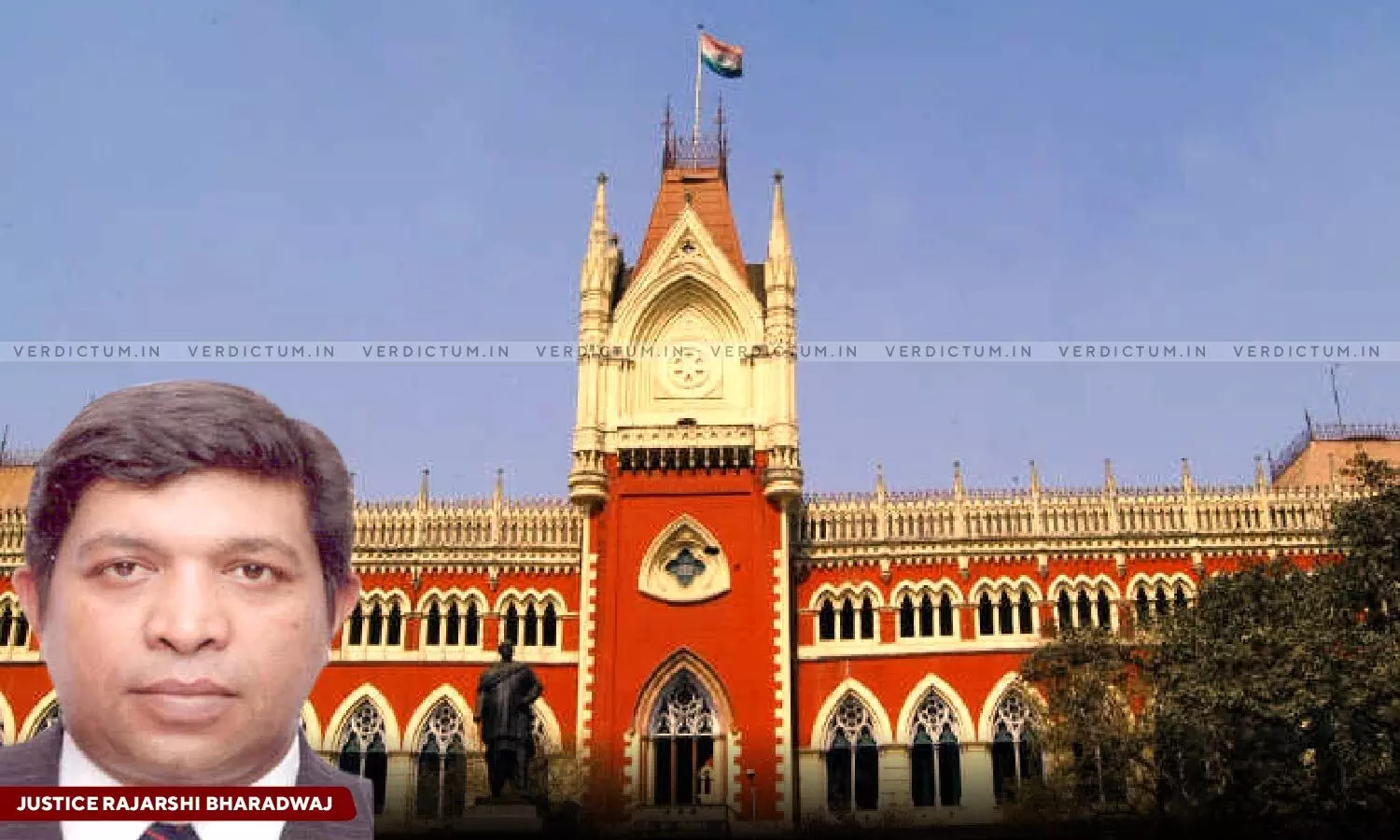
Right To Pension Cannot Be Taken Away By Administrative Instruction: Calcutta High Court
 |
|The Calcutta High Court reiterated that the right to pension cannot be taken away by administrative instruction.
The Court held thus while observing that pension and gratuity are not mere bounties, or given out of generosity by the employer, an employee earns these benefits because of his long, continuous, faithful and unblemished service.
The Court was hearing the present Writ Petition against the non-action of West Bengal State Warehousing Corporation in sanctioning the retiral benefits and dues of Petitioner.
The bench of Justice Rajarshi Bharadwaj observed, “It is well settled that the right to pension cannot be taken away by administrative instruction. Pension and gratuity are not mere bounties, or given out of generosity by the employer, an employee earns these benefits by virtue of his long, continuous, faithful and unblemished service. Pension is not an ex-gratia payment but it is a payment for the past service rendered. It is a part and parcel of the conditions of service.”
Brief Facts-
The petitioner Paresh Nath Mukherjee, an employee of the respondent corporation was arrested in a criminal case that was not related to his job. He was later sentenced to ten years of rigorous imprisonment under Section 304(1) of the IPC. He was suspended from his job under the West Bengal Services (Classification Control and Appeal) Rules, 1971. After being released on bail, he requested the corporation to lift his suspension. Instead, he received a show cause notice for potential dismissal. The petitioner challenged the suspension and show cause notice, leading the lower Court to quash both. He was reinstated and later retired. The petitioner subsequently requested his retirement benefits on multiple occasions but, the corporation never took action.
The Court noted that the corporation failed to demonstrate any correlation between the criminal proceedings against the petitioner and the duties required to be discharged by him in the course of service.
According to the Court, the quashing of the purported show cause notice and resumption of duty of the petitioner is treated to be an acceptance of dispensation of the order of suspension by the respondent corporation thereby conferring upon the petitioner the right to claim pensionary benefits including Provident Fund, Gratuity, Leave Salary.
The Court mentioned the decision in Anandi Prasad Mahato -versus- State of West Bengal reported in 2014(2) CHN (CAL) 103 where according to the Court the Calcutta High Court observed that where a person has been convicted in a criminal proceeding and such criminal proceedings has no nexus with the service of the petitioner coupled with the fact that there is no allegation during the service of the petitioner and no disciplinary proceedings have been initiated during the tenure of such employee, withholding of terminal benefits is without authority.
The Court further mentioned the decision in Subhash Mahato-versus-State of West Bengal reported in 2023 (2) CHN where as per the Court it has been opined that a retiral benefit of an employee is the property of the employee, to receive the same is not only a legal but also a constitutional right. The right to receive retirement benefits by an employee is a vested right that cannot be taken away without due process of law.
The Court noted that since criminal proceedings have not been instituted by the respondent corporation and the conviction of the Writ Petitioner on criminal charges was not related to his employment, Rule 7 of the Rules 1971 is not applicable.
The Court directed the respondent corporation to take appropriate steps in releasing the remaining retirement benefits instead of employment of the petitioner within three months from the date of communication of this order.
Finally, the Court disposed of the Writ Petition.
Cause Title: Paresh Nath Mukherjee v. West Bengal State Warehousing Corporation
Appearance:
Appellant: Adv. Dwaipayan Basu Mallick and Adv. Sayantan Kar
Respondent: Adv. Kamalesh Bhattacharya and Adv. Aninda Bhattacharya